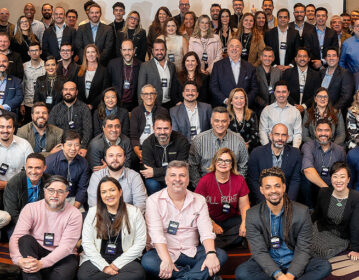To solve for rising IT costs, IT and finance leaders collaborate to scrutinize technology spend and ensure budgetary and goals are met
LAS VEGAS – June 20, 2024 – Rimini Street, Inc. (Nasdaq: RMNI), a global provider of end-to-end enterprise software support, products and services, the leading third-party support provider for Oracle and SAP software, and a Salesforce and AWS partner, today announced the findings of the Censuswide survey, “C-suite Imperatives: Evolving IT and Enterprise Investments.” The Rimini Street-sponsored research was conducted among nearly 3,000 CFOs and CIOs around the globe, examining the relationship between the key business leaders, and the drivers behind their technology investments and decisions.
The analysis of the data revealed that as IT costs and spend continue to rise, CFOs are increasing their influence over IT. Budgetary considerations and demand for results require CIOs to deliver strong ROI from selected technology investments. CIOs that work in close partnership with their CFO counterpart can help drive profitable results for the business by prioritizing projects that support the company’s financial and growth goals.
Key Finding #1: The CFO and CIO partnership continues to strengthen
86% of CFOs and CIOs say their relationship has strengthened.
CFOs are taking a more prominent role in the decision-making of IT investments. The data shows 72% of CFO survey respondents say they take the lead in setting technology budget levels, and nearly 41% of CIO respondents state that their CFO counterparts make the underlying technology decisions.
The deepening collaboration and shared accountability between the two groups can lead to greater profitability for the business, with 49% of CFO respondents sharing that they believe the positive CFO/CIO relationship was the reason for improved business outcomes.
“Working closely with the CFO in strategic alignment and in the early stages of planning helps technology teams make smart decisions that are in line with both the corporate vision and budgetary goals for the business,” said Rimini Street CIO, Gertrude Van Horn. “It’s the partnership that drives favorable outcomes for the company, and we lean heavily into this relationship to ensure we are identifying ways to achieve greater profitability while freeing funds for innovation.”
Key Finding #2: CIOs are focused on solving for rising IT costs
CIOs are tackling rising IT costs with investments in emerging tech (44%) and by outsourcing application support (36%).
CIOs are investing heavily in AI to address rising IT costs. A combined 87% of CIOs agree that historical data is the secret sauce to maximizing the value of their AI projects for ERP, but a staggering 94% state that their data needs substantial or moderate clean-up in order to succeed with AI.
Another area of budgetary focus for CIOs is to improve cost predictability. By outsourcing IT services, which can help solve for the loss of IT talent and staff, CIOs reported the benefits include support of application customizations (33%), broader service and support solutions (33%), better quality of service and support (32%) and faster resolutions (30%). And 26% say they were able to lower costs.
Key Finding #3: Not all technology initiatives are delivering value for the business
ERP upgrades or migrations (23%) delivered the least amount of value for CFOs.
While security (28%), emerging technologies such as AI, business intelligence and data analytics (27%), and customer-facing SaaS technologies (27%) rounded out the top three spots for technology investments considered highest in value for the business, ERP upgrades or migrations failed to show the same level of enthusiasm from the CFOs surveyed.
Only 20% of surveyed CFOs state that they are happy with the results of their technology investments. They often experience a negative impact, such as increased ongoing costs, limited future flexibility, or organizational/business disruption. Because of this, CIOs must consider both the short and long-term impact of their technology strategy.
“Thousands of clients of Rimini Street who have taken the lead in maximizing the value of their substantial ERP investments also benefit from the flexibility and freedom to innovate with best-fit solution for their needs, on their own timeline,” said Rimini Street CFO, Michael Perica. “It’s not just about the $8B we’ve saved our clients to date, we’ve helped them reallocate their people, time and money towards strategic initiatives and innovations that accelerate growth profitability for the business.”
Access the full, comprehensive report, “C-suite Imperatives: Evolving IT and Enterprise Investments,” here.


